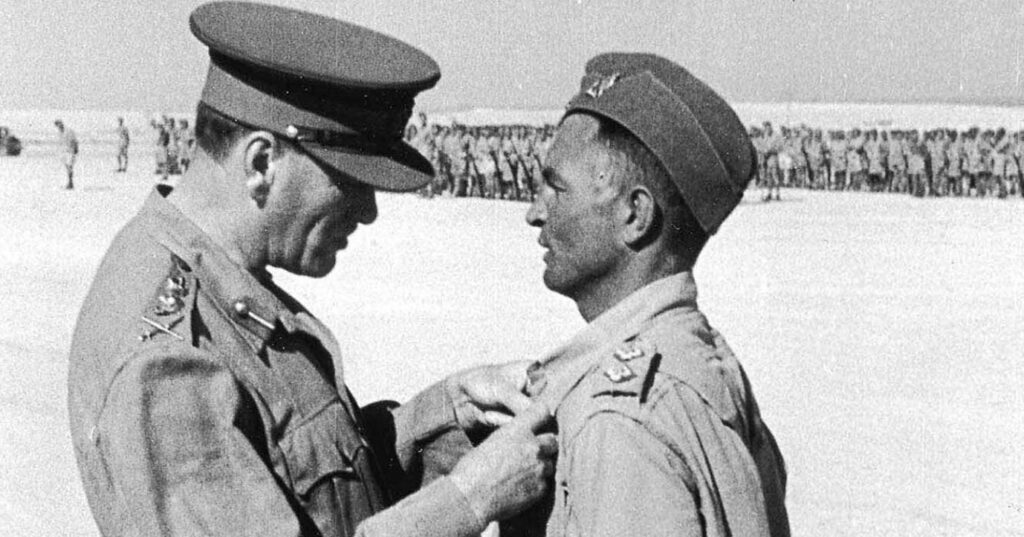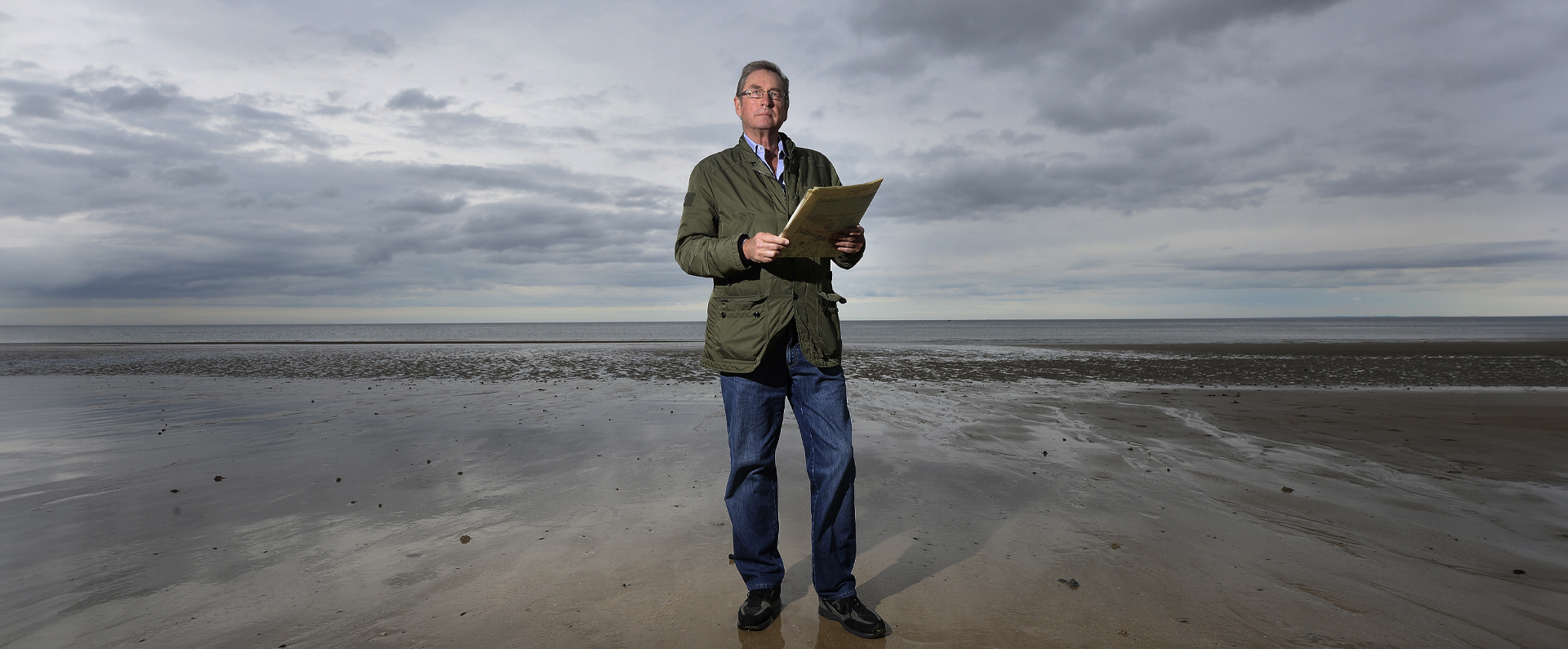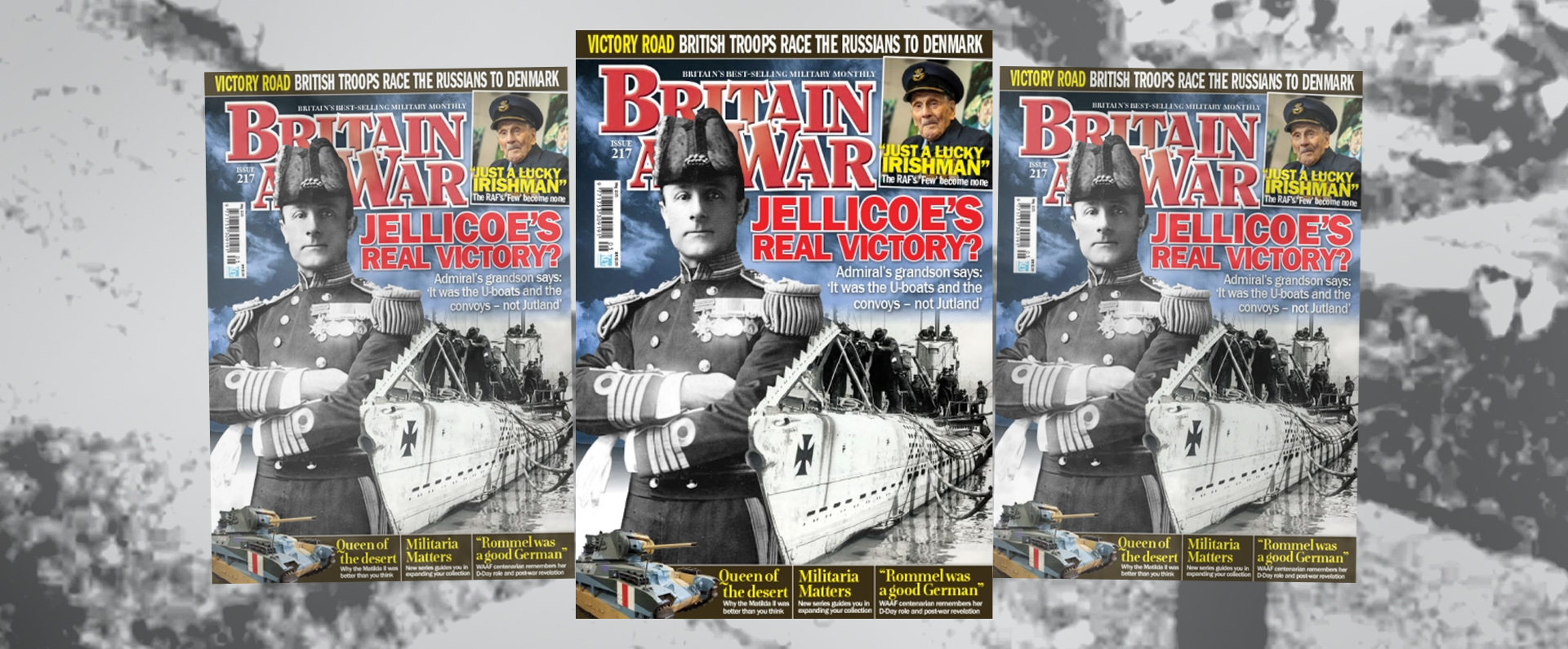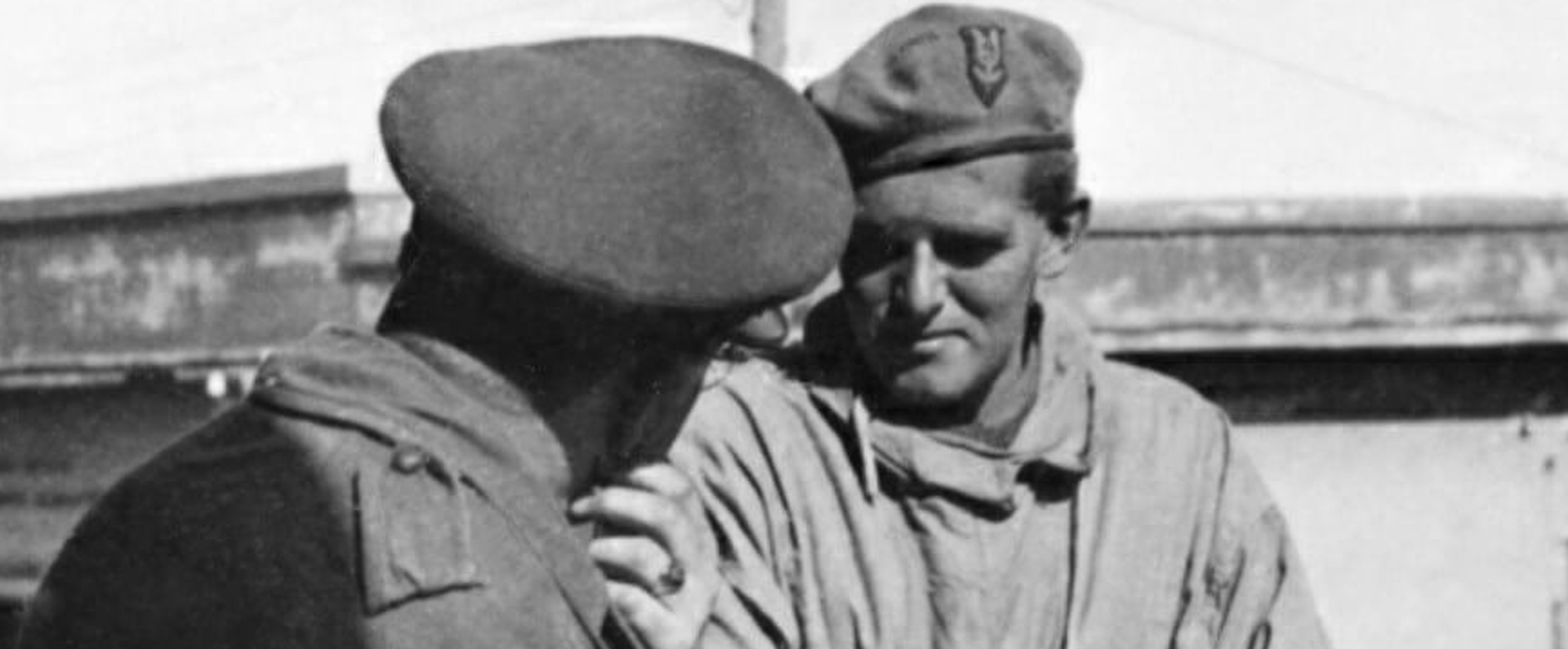
First published in the New Zealand Herald on 14 November 2021.
Captain Charles Upham
Few military graveyards are set in a location as stunning as Suda Bay War Cemetery.
Situated below olive groves buzzing with cicadas and only a stone’s throw from the turquoise waters of the Mediterranean Sea, it commemorates more than 1500 fallen Commonwealth servicemen from World War II.
Walking through row upon row of white headstones on perfectly manicured lawns in northwest Crete, it is impossible not to feel deeply moved by quite how many young lives were lost 80 years ago during the battle for this picturesque Greek island.
In reality too, this Commonwealth War Graves Commission cemetery, which has a blue and white Greek national flag fluttering on a nearby jetty, should have been the final resting place of Charles Upham, a New Zealand farmer turned army officer.
For he risked his life time and again under the most dangerous circumstances defending Crete from its German assailants. As we mark Armistice Day and Remembrance Sunday, it is appropriate to tell the full story of Upham’s life and how he became the only combat soldier ever to be awarded two Victoria Crosses (VCs), Britain and the Commonwealth’s most prestigious award for gallantry in the presence of the enemy.
His so-called “VC and Bar” (the Bar refers to his second decoration) entitles him to be regarded as the greatest frontline soldier of modern times. As the author of seven books on bravery and as the person to have amassed the world’s largest collection of VCs, currently on public display at the Imperial War Museum in London, I certainly regard Upham as the “bravest of the brave”.
Yet his courage also came with a quite extraordinary modesty.
CHARLES HAZLITT UPHAM was born in Christchurch on September 21 1908. One of three children and the son of a lawyer, John Upham, and his wife, Agatha, he boarded for 10 years until 1927, first at Waihī School, Winchester, South Canterbury, and, later, Christ’s College, Christchurch.
Quiet and determined, he had an early sense of justice and fair play, intervening on occasions to prevent schoolmates being bullied. For the next 12 years, until the outbreak of war in 1939, he studied and pursued a career in farming. He loved animals, particularly horses and dogs.
Upham enlisted into the 2nd New Zealand Expeditionary Force in September 1939, just days after the outbreak of the war and having served for five years in the territorials.
Medium height, wiry and as tough as teak from his years as a farmer, he was eager to become the best soldier possible.
His discipline and skills saw him gain three promotions in 14 months, being commissioned as a second lieutenant on November 2, 1941, and being given command of a platoon in his 20th Otago-Canterbury Battalion.
Having already served in Egypt, his next destination in March 1941 was Greece, only to be evacuated to Crete as the Allies were forced off the mainland. On May 20, the Germans launched an attack on Crete, which they saw, like the nearby island of Malta, as strategically important in their quest for military domination of the southern Mediterranean.
The airborne attack, codenamed “Operation Mercury”, largely by paratroopers and gliders, saw fierce fighting along the northern coast of the island and Upham was, typically, soon in the thick of the action.
The lengthy citation for his first VC earned over nine days of intense fighting begins: “During the operations in Crete this officer performed a series of remarkable exploits, showing outstanding leadership, tactical skill and utter indifference to danger”.
His daring exploits, when he was aged 32, began in earnest on May 22 when he led a counterattack on Maleme airport, which had fallen into enemy hands.
He and his platoon pushed forward nearly two miles with Upham leading from the front, including taking out at least three machine-gun positions using his pistol and hand grenades. The hand grenade soon became his weapon of choice but it carried dangers too as he liked to get to as close as 15 yards from an enemy position to get a perfect aim.
When his company was forced to withdraw, Upham carried a wounded comrade back under fire. A comrade who witnessed the incident said later: “Bullets and shrapnel were flying about. A chap walked out of olive trees and across open country. No shirt, shorts bloodsmeared, carrying a badly wounded man. I said to my CSM [Company Sergeant Major], ‘He’ll either get a wooden cross or a Victoria Cross’.”
Next, Upham and a corporal ran some 600 yards under enemy fire to alert another company that it had become isolated. Killing two Germans on the way, he brought the company back before it was cut off.
For his actions that day alone, he deserved the VC but his citation goes on to detail more acts of outstanding gallantry. By this point he was wounded too, having come under heavy fire in an exposed forward position on May 23 and 24. He was blown over by one mortar shell and injured by a piece of shrapnel behind his left shoulder from another shell. He also received a bullet in one of his feet which he was unable to remove for the next fortnight.
On May 25, his platoon was forced to seek cover under a ridge from relentless mortar and machine-gun fire but Upham decided the best form of defence was attack. Launching a terrifying assault with gunfire and grenades, he and his men killed 40 more enemy soldiers and forced other enemy units to retreat.
Next, Upham again went to warn other Allied troops that they were in danger of being cut off but he was spotted by two Germans soldiers who fired on him as he ran off. He crawled for cover but was unable to fire his gun properly as he had been wounded in one arm.
When the enemy soldiers came looking for him to confirm they had killed him, his injury meant he had to rest his rifle in the fork of a tree to fire it. As the two men emerged, he shot them both dead despite having to reload with one arm. The second soldier was shot at such close range that he hit the muzzle of Upham’s rifle as he fell.
It soon became clear, however, that the Allies, mainly New Zealand, British, Australian and local Cretan troops, would have to retreat from the better-equipped enemy force. Upham and his men prepared to be evacuated by boat from Sphakia on the south of the island.
However, before they could get off Crete they were ordered to confront an enemy unit that had advanced along a ravine. By this point exhausted and demoralised, Upham took a Bren gun and two riflemen to the top of the ravine. Using clever tactics to encourage the enemy to expose themselves, he shot 22 dead at long range and the remainder dispersed in panic.
Incredibly, during these remarkable nine days of battle, Upham had been suffering from acute dysentery, which left him virtually unable to eat, on top of being wounded several times. The citation for his first VC ended: “He showed superb coolness, great skill and dash and complete disregard of danger. His conduct and leadership inspired his whole platoon to fight magnificently throughout, and in fact was an inspiration to the battalion.”
An Allied force of more than 32,000 combat troops had defended Crete. Casualty figures vary due to the chaotic scenes on the island but of these, more than 2000 were killed, some 12,000 taken prisoner and some 18,000 were evacuated. Over the next four years of occupation, terrible atrocities were committed on the local population, including more than 500 civilians being executed.
Upham had been ordered against his will to be evacuated so he could receive medical attention in Egypt. However, he was soon back on frontline operations joining the New Zealand Division in the Western Desert, where, much to his embarrassment, he learnt he had been awarded the VC for his courage on Crete. He was prepared to accept it only on the basis it was on behalf of all of his men too.
Upham was promoted to lieutenant in November 1941 and to captain in May 1942. On June 27 1942, German forces attacked the division’s positions at Minqar Qaim. Upham spent much of the day moving about in the open under heavy fire, checking on his men and rallying them to fight back.
The next night Upham again led from the front during the famous break-out from Minqar Qaim. During intense fighting, he and his men used hand grenades to destroy an entire truck of German soldiers with Upham being wounded by the explosions.
On the night of July 14/15, the New Zealand Division attacked Ruweisat Ridge with disastrous consequences. Despite his earlier wounds and being initially part of the reserve battalion, Upham was soon on the frontline at what became the First Battle of El Alamein.
Just before dawn on the 15th, he led a successful attack on two well-defended enemy positions, personally destroying a tank, several guns and a number of vehicles with hand grenades.
However, at one point he was shot through the elbow by a machine-gun bullet that broke his arm. Undeterred he fought on, pushing forward to bring back comrades who had become isolated before helping to fight off yet another German attack.
Exhausted and weak from loss of blood, he was briefly treated at a Regimental Aid Post before returning to battle. Under a relentless artillery and mortar fire, he was wounded yet again, this time with serious shrapnel wounds to one of his legs. Unable to retreat, he was taken as a prisoner of war. At this point, he was missing feared dead by his men.
Upham refused to allow German doctors to amputate his badly-injured arm without an anaesthetic, aware of how many comrades had died in agony in similar conditions. As soon as he was on the road to recovery, he plotted a series of daring, often desperate, escape attempts.
He was transferred from a prison camp in Italy to Germany in September 1943, where he tried to escape from Weinsberg prison camp in broad daylight. After falling between two high barbed-wire fences, his incredulous guards decided to shoot him with a camera rather than a gun – a photograph of him lying on the ground in between the two fences entangled in wire and smoking a cigarette exists to this day. Over two years, he spent much of his incarceration in solitary confinement for endless breaches of prison rules.
In October 1944, he became the only New Zealand combatant to be sent to Colditz, the notorious prison for dangerous and habitual escapers. It was here that the Americans liberated him and others close to the end of the war.
Typically, Upham wanted to join an American unit to fight on but he was instead transported to Britain where his girlfriend, Molly McTamney, also from New Zealand, was working as a nurse. Reunited, the couple married in Hampshire on June 20, 1945. Upham returned to his homeland in September and his bride followed two months later.
Evidence was soon mounting that Upham deserved a second VC for his gallantry in the North Africa in the summer of 1942. George VI who had invested Upham with his first VC on May 11, 1945, at Buckingham Palace, became aware of this and told Major-General Howard Kippenberger that it would be “very unusual indeed”, adding “Does he deserve it?”.
The New Zealand general, affectionately known as simply “Kip” and who had fought on Crete, replied, “In my respectful opinion, Sir, Upham won the VC several times over.” The Bar to his VC was announced on September 26, 1945. To this day, the VC and Bar has been awarded to two only other men, both medical officers who served in World War I (one of whom earned his first VC for the Boer War).
Back home, Upham was a reluctant war hero, constantly turning down public appearances and media interviews. When a grateful nation raised £10,000 to buy him a huge farm in late 1945, he politely declined the offer, uncomfortable at being singled out for treatment he did not consider himself be deserving of. Instead, at his request, the money was used to create a charity enabling the children of servicemen to study at college or university.
However, using a government rehabilitation loan, Upham did eventually buy his own farm in Rafa Downs, north of Christchurch, where he happily worked the land, his pipe rarely far from his mouth. He and Molly also had three daughters, including twins. For years, his daughters grew up blissfully unaware their father was a decorated war hero: he had never mentioned it and they only learned about his exploits when they attended boarding school.
Time and again, Upham turned down prestigious invitations, saying he was too busy tending his sheep. One rare public function Upham attended was a visit to the UK for the centenary of the VC in 1956. At one gathering, Lord Mountbatten, himself a decorated war hero, asked Upham why he was not wearing his medals. Eventually, Upham rummaged around in his pocket and produced them, saying, “My wife made me bring them.” He had not wanted to draw attention to himself.
The Queen met Upham several times during her visits to New Zealand. Asked what they had discussed after one such encounter, Upham replied, “Boy, she knows her horses, that girl!” Any suggestion that he might receive a knighthood – and there were many over the years – were firmly rejected by Upham.
In 1985, Upham was taken by surprise by the host of the New Zealand version of This Is Your Life. He looked shy and embarrassed throughout the programme, barely saying a word but his joy at being reunited with his former war comrades was unmistakable.
In 1994, frail and still suffering from his wartime injuries, Upham left the farm that had been his pride and joy for 47 years.
“I should have left years ago,” he admitted, as he and Molly settled into a new life in a retirement village in Christchurch. Just seven months later, on November 22 1994, Upham died surrounded by his wife and daughters. He was 86.
His state funeral at Christchurch Cathedral saw 5000 people line the streets and later his ashes were buried in a family plot at St Paul’s Church, Papanui, a suburb of Christchurch.
His memorial could hardly be more understated, giving his name, regimental number, final rank, dates of birth and death, and adding simply “VC & Bar”.
Quite rightly, Upham has been the subject of two splendid biographies: Mark of the Lion by Kenneth Sandford, first published as long ago as 1962, and Searching for Charlie by Tom Scott, published as recently as last year.
IN NOVEMBER 2006, Upham’s daughters sold their father’s medal group to the Imperial War Museum in London for an undisclosed sum. However, his gallantry and service medals are on permanent loan to the National Army Museum at Waiouru on New Zealand’s North Island.
After his medal group was stolen along with other valuable medals in December 2007, I intervened by putting up a $200,000 reward for the recovery of 12 medal groups, including Upham’s. I was delighted when Nelson businessman Tom Sturgess also put up a $100,000 reward with the same aim. Soon all the medals were safely returned to the museum.
When it appeared that the villains themselves had benefitted from the reward, I put up a second reward $200,000 for information leading to the arrest and conviction of the thieves. This, too, had a successful outcome, leading to the arrest and conviction of two men. I was delighted to play a role in the recovery of the Upham medal group and I am equally pleased that I always receive a warm reception whenever I visit New Zealand.
It is frankly unthinkable in the context of modern warfare that any individual serviceman will ever again be awarded two VCs. To this day, Captain Charles Upham, VC and Bar, is rightly feted as a national hero in New Zealand and all around the world. Streets, a ship and a plane have all been named in his honour and there is a statue of him in Amberley, North Canterbury.
Were he still alive, Upham would, of course, feel awkward about such public acclaim but I suspect even he would have been a little moved during his lifetime by the short tribute that accompanied his portrait in a book about the prisoners of Colditz.
The page with his details had ample space for a much longer write-up about him but it contained only these carefully-chosen words: “Captain C.H. Upham, V.C. & Bar. New Zealand Military Forces. An officer and a gentleman – determination and singleness of purpose personified – loyal, constructive, quiet, unassuming and friendly.”
Read this article on NZHerald.co.nz …
For more information, visit:
LordAshcroftOnBravery.com


